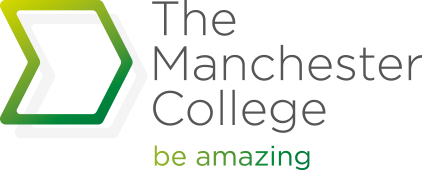
A Guide to Health and Social Care Courses
Are you wanting a career in the health and social care industry? You’ve come to the right place!
With healthcare workers having an 80% satisfaction rate in their roles, you’re on the way to a fulfilling and rewarding career.
This guide aims to be a one-stop resource for prospective students interested in Health and Social Care courses.
It will cover eligibility criteria, career prospects, course structure, financial aid options, and more, providing a holistic view to help students make an informed decision.
What health and social courses are available at TMC?
Here at TMC, we offer a wide range of courses in health and social care.
We offer:
- Health And Social Care Level 1
- Health And Social Care Level 2
- Health And Social Care Level 3
- Adult Social Care
- T-Level - Health and Assisting Nursing
- Counselling
- Applied Psychology
Read on to find out more about each course.
Health and Social Care courses
Level 1 Health and Social Care
The Level 1 Health and Social Care course serves as an introductory course for those who want to enter the health and social services sector. It serves as an entry point for individuals who are interested in pursuing a career in the field but may not have previous experience or qualifications.
Entry requirements
No formal entry requirements.
Level 2 Health and Social Care
Equivalent to GCSEs, the Level 2 Health and Social Care builds upon the foundational concepts introduced in Level 1. Level 2 delves deeper into health and social care practices.
In this course, students typically explore more advanced topics, including specific care techniques, a deeper understanding of health conditions and enhanced communication skills.
Entry requirements
No formal entry requirements.
Level 3 Health and Social Care
Equivalent to an A Level, the Level 3 Health and Social Care is a more advanced course, designed for individuals who have a solid understanding of the subject.
At Level 3, the curriculum becomes more specialised and in-depth, covering a range of complex topics essential for individuals pursuing leadership roles or specialised careers in health and social care. Students may delve into areas such as advanced care planning, healthcare policies and regulations, and management within the healthcare sector.
If you want to go on to study a health and social care subject at university, it is recommended to complete this course.
Entry requirements
Minimum of 4 GCSEs at grade 4 or above, including English or maths.
Or
Prior achievement at Level 2 Functional Skills in English or maths.
(A merit or higher at vocational Level 2 or NVQ Level 2 may be considered as a GCSE equivalent).
Health and Social Care career pathways
Here are some health and social care career pathways you can take if you study this subject and pursue higher education in the sector:
- Nursing
- Paramedic
- Radiologist
- Midwife
- Optometrist
- And more
Adult Social Care Courses
The primary goals of the Adult Social Care qualifications are to familiarise learners with essential concepts of caregiving and to prepare them for employment in adult social care.
The course comes in two Levels. Level 2 Adult Social Care and Level 3 Adult Social Care.
The course covers key areas related to working in this sector, including:
- Communication skills
- Promoting equality and diversity
- Personal development
- Understanding the role of a social care worker
- Handling information responsibly
- Ensuring health and safety
- Safeguarding practices
- Duty of care
- Adopting person-centred approaches in caregiving
Entry requirements
Level 2: No formal entry requirements
Level 3: Minimum of 4 GCSEs at grade 4 or above, including English or maths.
Or
Prior achievement at Level 2 Functional Skills in English or maths.
(A merit or higher at vocational Level 2 or NVQ Level 2 may be considered as a GCSE equivalent).
Adult Social Care career pathways
Here are some adult social care career pathways you can take if you study one of these courses.
- Caregiver in residential care facilities
- Home care assistant
- Disabilities support worker
- Mental health support worker
- Social services assistant
- Community outreach worker
- Elderly care coordinator
- More
Health and Assisting Nursing Course
Introduced in September of 2020, T Levels are a way for students to get UCAS points and are the equivalent of 3 A Levels. The courses combine traditional classroom learning with hands-on work experience with a minimum of 45 days, similar to an apprenticeship.
This course equips you with essential knowledge in health and science, covering industry workings, core scientific concepts, and key regulations. Specialising in supporting healthcare, the focus is on adult nursing care, involving tasks like clinical assistance, treatment support, and recording physiological data.
Entry requirements
5 GCSEs at Grade 4 or higher including English, maths and science.
Health and Assisting Nursing career pathways
Upon completing the T Level, you can start a career as a nursing or healthcare assistant.
For more specialised roles, pursuing higher education opens doors to becoming a registered nurse. From here, you can choose the avenue you want to take, from paediatrics to critical care.
Counselling Courses
Level 2 Counselling
In Level 2 Counselling Concepts learners are introduced to using counselling skills in daily life and work and exploring foundational approaches. It provides an opportunity to understand the knowledge and skills required for using counselling skills in appropriate helping interactions.
Entry requirements
No formal entry requirements.
Level 3 Counselling
The Level 3 Counselling Skills course is for individuals who are aspiring towards becoming qualified, progression counsellors and want to enhance their skills in the field.
A Level 3 Counselling course delves into advanced counselling techniques, ethical considerations, various theories and practical applications. It emphasises mental health awareness, cultural competence and research methods.
Entry requirements
Minimum of 4 GCSEs at grade 4 or above, including English or maths.
Or
Prior achievement at Level 2 Functional Skills in English or maths.
(A merit or higher at vocational Level 2 or NVQ Level 2 may be considered as a GCSE equivalent).
Level 5 Counselling
The Level 5 Counselling Foundation Degree offers an academic route for those aspiring to work in counselling across diverse sectors. The course typically covers advanced topics such as complex counselling theories, ethical considerations, in-depth practical applications and specialised approaches for diverse client populations.
Entry requirements
Candidates must have the relevant UCAS points to study a foundation degree.
All candidates will be invited in for an interview, will be required to complete a written essay and carry out an individual presentation to assess their suitability for the programme.
Counselling career pathways
You can enter a number of careers in the counselling industry, such as:
- Private counsellor
- School counsellor
- Mental health counsellor
- Marriage and family therapist
- Grief counsellor
- Rehabilitation counsellor
Applied Psychology Course
The Level 3 Applied Psychology course provides a practical exploration of psychological theories and their real-world applications. Students learn to conduct psychological research, explore health psychology, delve into criminal and forensic psychology, understand children's psychological development, examine psychopathology, and apply psychological principles in the context of sports.
Entry requirements
5 GCSEs at grade 4 or above including English and Maths.
Applied Psychology career pathways
You can enter a wide range of careers in the field of psychology, it depends on which avenue you are most passionate about.
- Clinical psychologist
- Forensic psychologist
- Health psychologist
- Sports psychologist
- Educational psychologist
- Counselling psychologist
- Child psychologist
- And more!
Finance options for Health & Social Care Courses
If you’re aged 16-18 years old, you won’t have to pay any course fees or exam costs whilst studying at TMC.
If you are older than 18, and fall into any of the following categories, TMC may be able to remit your course fees.
- Age 19-23 - studying your first full Level 2 or 3 course If you don’t already have a full Level 2 or 3 qualification.
- Age 19-23 - If you are studying a course up to Level 2 and claiming welfare benefits.
- Age 19-23 - Looking for employment and studying a course up to Level 2 and receiving ESA or Universal Credits - the course must have progression to employment.
- Aged 19+ - You are working on a low income and want to study a course up to Level 2. You must earn less than the threshold income threshold (GM residents is £18,135 annual gross salary and non-GM residents is £17,004).
- Aged 19+ If you are studying an eligible Level 3 course you may be eligible for government funding through the National Skills fund.
Alternatively, if you do not fit any of the above, you may have to make an application for an Advanced Learner Loan to pay the course fees.
You may also be able to use SFE funding for any foundation degrees.
Discover more details on our Fees, Finance & Funding page.
Why choose Health and Social Care at TMC?
At TMC, we have a team of passionate and experienced teachers, committed to provide you with the best level of education, no matter which course you take.
TMC isn't just a campus; it's a launchpad for your professional aspirations. The faculty doesn't just teach; they guide, mentor, and carve a path for your future in the field of health and social care.
Find the extensive list of our Health and Social courses and apply today to get started on your career journey.
